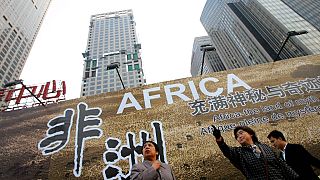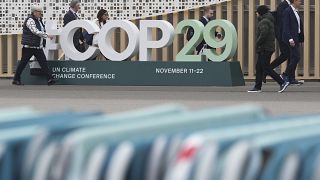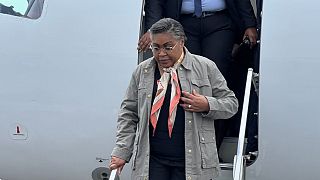EU-China
China on Wednesday urged the European Union to stop “politicizing” trade issues after the EU released a draft decision to finalize tariffs on electric vehicles made in China.
The EU's draft decision on final EV tariffs made mostly minor modifications to the provisional rates announced last month.
Autos exported by BYD, the largest EV maker in China, would face a 17% tariff, while those from Shanghai-based SAIC Motor would be hit with the highest rate of 36.3%.
In Beijing, China's Foreign Ministry spokesperson Mao Ning once again denounced the tariff plan, saying it was politically motivated.
The tariffs are subject to the approval of the EU member states. A final decision must be made by early November, four months after the July 5 effective date of the provisional tariffs.
At the daily briefing, Mao said China was “seriously concerned” about a reported approval by the Biden administration of a secret nuclear strategic paper with a focus on China.
The classified paper passed in March underscored China’s rapid expansion in its nuclear arsenal which would soon compete with that of the US and Russia in terms of size and diversity, according to an American media report.
Separately, Mao pushed back against Taiwan President Lai Ching-te’s criticisms of China’s “military aggression” in the seas surrounding Taiwan at a forum Wednesday.
Mao also commented on a report that Beijing began requiring Hong Kong-based foreign consular officials to seek Chinese authorities’ approval ten days ahead of their business visit to the Greater Bay Area, including Macao and southern Guangdong province.
Without confirming the report directly, Mao said foreign consular officials should obtain China’s “consent in advance” if they planned to visit areas outside their consular district for business purposes according to the Vienna Convention on Consular Relations.
Hong Kong media said the new rule could complicate the diplomat’s business visit since they would be asked to explain the reason for the trips, the personnel, times and venues involved, and any department that foreign officials plan to visit to get the permit.











02:20
British Museum unveils vast network of the Silk Roads
08:00
A look inside Algeria’s largest port: How exports are fuelling the country’s economic growth
Go to video
US hails 'Record' year for trade with Africa
Go to video
WTO: a slowdown in world trade growth in 2023
02:45
Africa Travel Market optimistic over new growth prospects
Go to video
Tanzanian cargo ship overturns in Iranian port